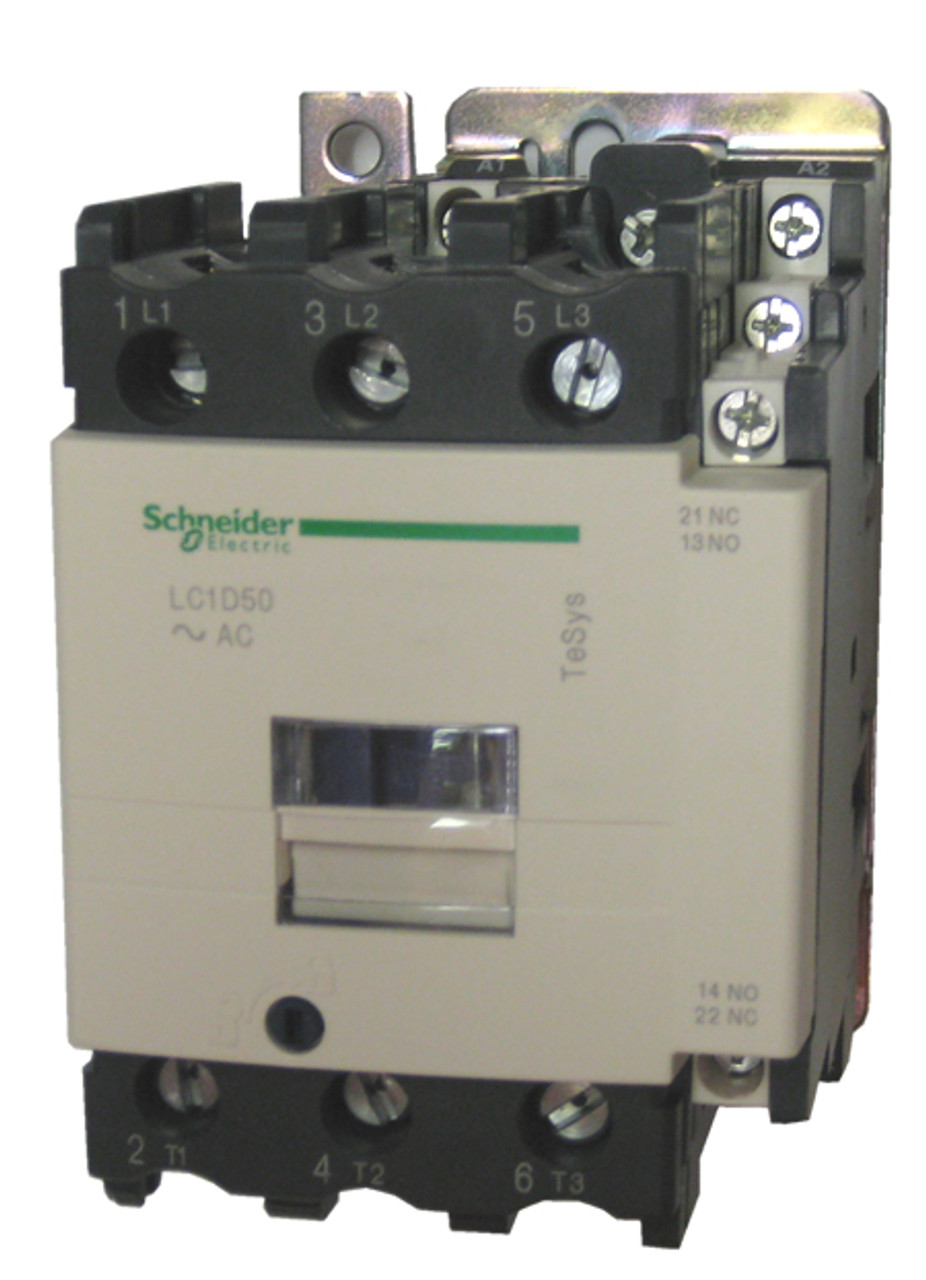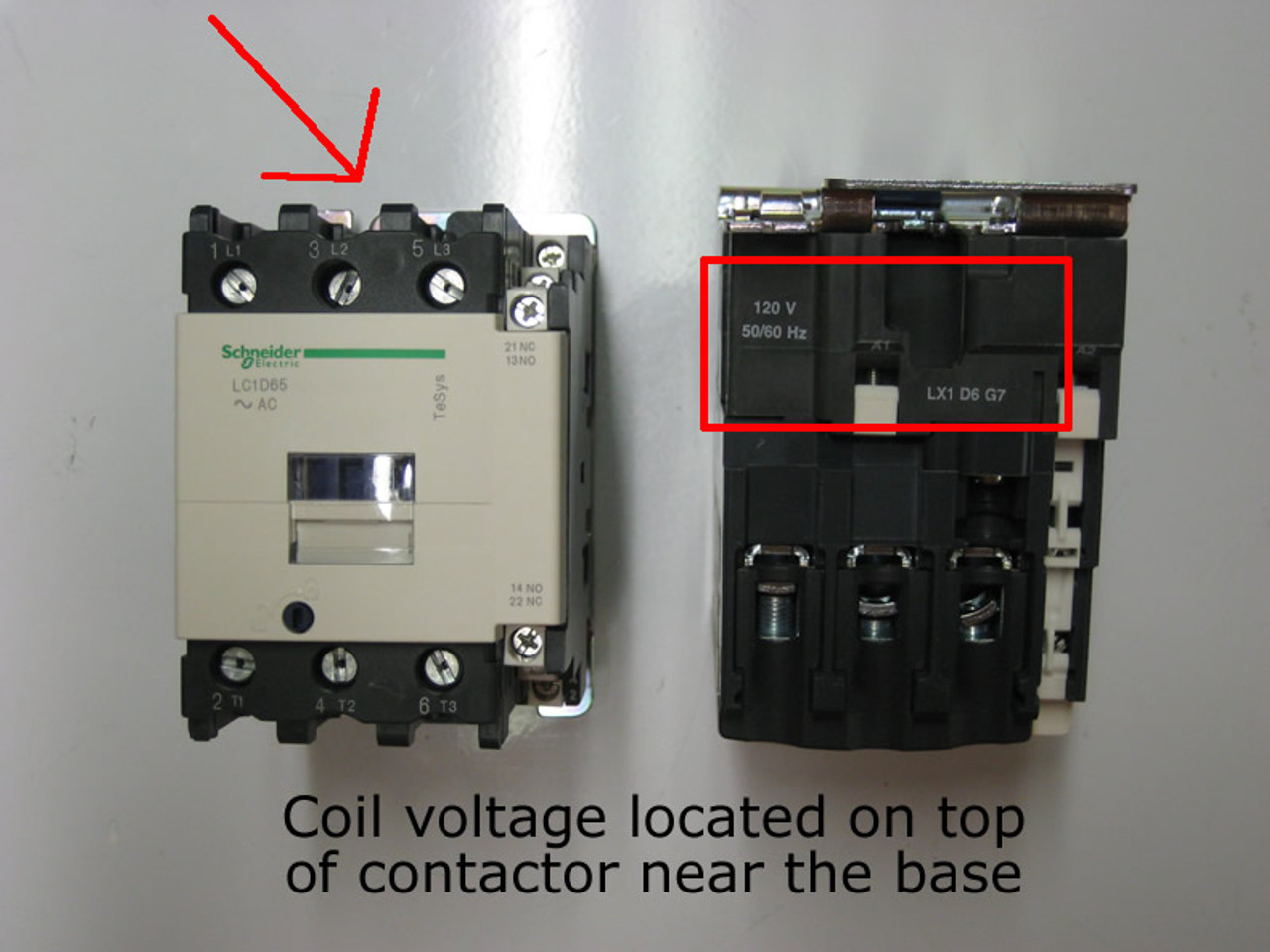Product Description
Schneider Electric LC1D50LE7 contactor rated at 50 AMPS AC-3 (80 AMPS AC-1) with a 208v50/60Hz AC coil and 1 normally open (N.O.) and 1 normally closed (N.C.) base mounted auxiliary contacts. This 3 pole IEC rated contactor has screw terminals, can be mounted on standard 35MM Din rail or base mounted, and has coil connections on both the top and bottom of the contactor. Top and side mounted 2 and four pole auxiliaries can be added to the LC1D50LE7 contactor along with load side direct mount thermal overload relays for complete motor protection.
| AMP Rating |
50 AMPS AC-3 80 AMPS AC-1 |
| Coil Voltage | 208 volt AC |
| Horsepower |
40 H.P. @ 460 volt 15 H.P. @ 230 volt |
| Number of Poles | 3 |
| Auxiliaries | 1 N.O. / 1 N.C. |
Contactor Ratings
• LC1D contactors and overload relays are available in 11 contactor ratings for the USA market for inductive motor applications up to 150 full-load amps and resistive loads up to 200 A. They offer motor control and overload protection for motors rated up to 100 hp at 480 Vac or 125 hp at 600 Vac.
• 3-pole and 4-pole contactor versions available.
• All contactors include built-in auxiliary contacts.
• All screw connections have IP20 rated touch-safe terminals with both North American and International terminal markings.
• LC1D contactors can be panel mounted with screws or DIN rail mounted.
Easily Installed Accessories
• Auxiliary contact blocks with serrated wiping action
• Front mount dust tight auxiliary contact blocks
• Pneumatic time delay blocks
• Transient voltage surge suppressors
• Interface modules and electronic timers
• Mechanical latching blocks
Control Circuit Flexibility
The LC1D contactors are available with ac or dc operating coils. Several devices utilize a low consumption dc coil with built-in transient suppression for operation with a low-level dc signal from a computer or PLC without need for an interposing relay.
Overload Relays
Class 10 or Class 20 bimetallic LRD overload relays are available up to 140 A. They are bimetallic ambient compensated and are available with or without single-phase sensitivity for phase unbalance and phase loss protection. New solid state overload relays are available for 90 to 150 A applications. Both bimetallic and solid-state overload relays include the following features:
• Isolated N.C. trip contact and N.O. alarm contacts.
• Manual or Automatic reset function (bi-metallic versions only).
• Tamper-resistant window for FLA settings.
• Test trip button.
<BR





